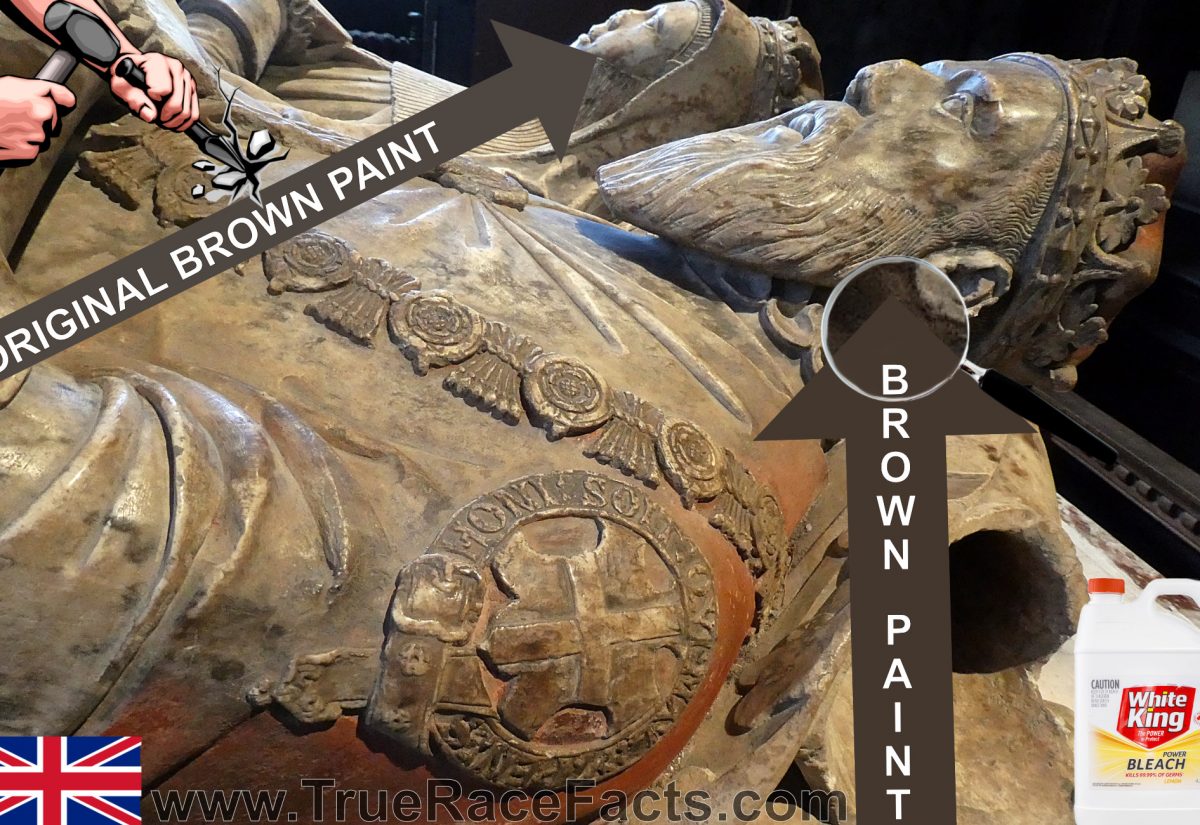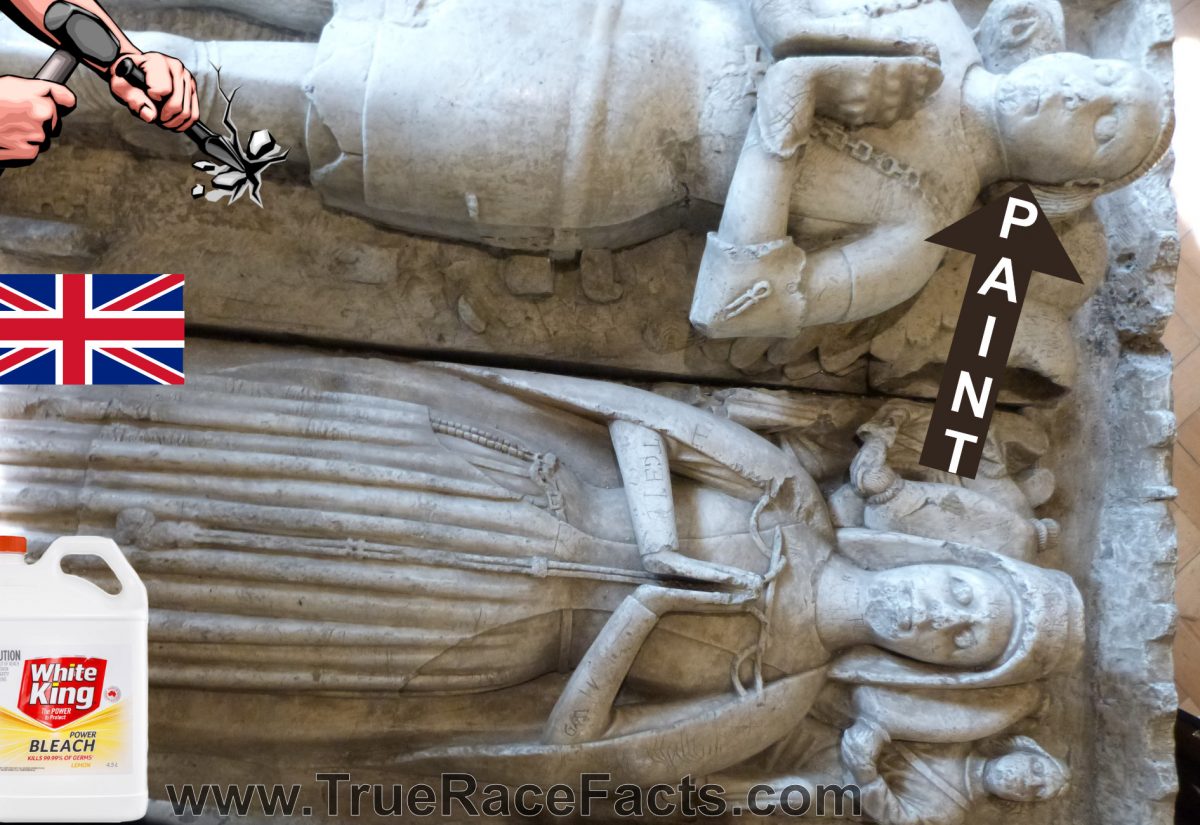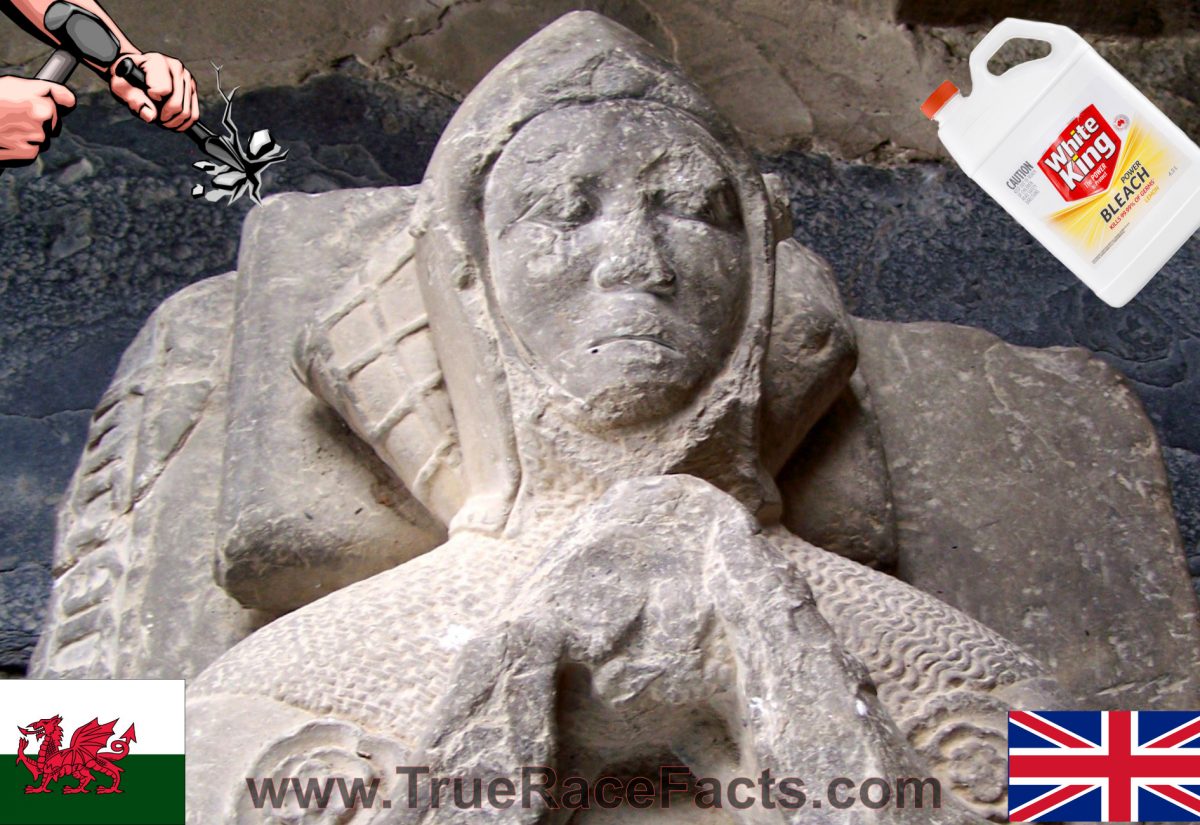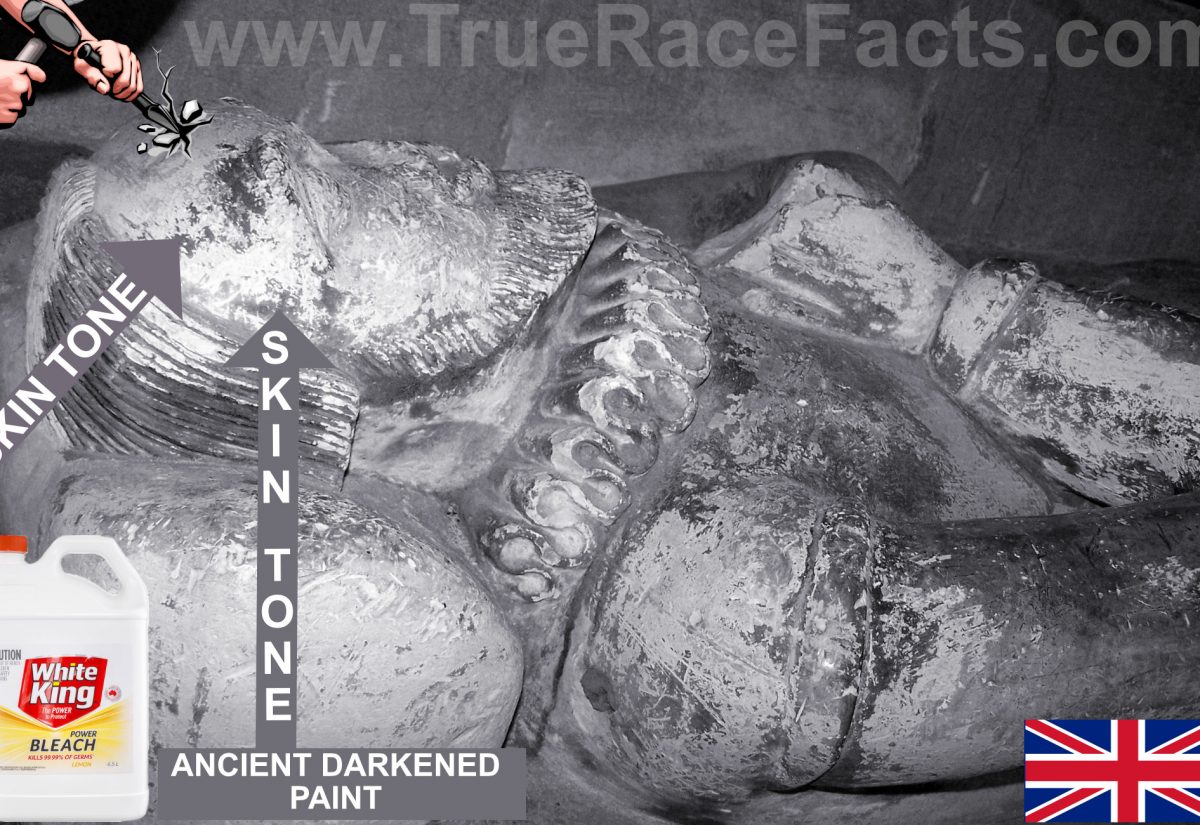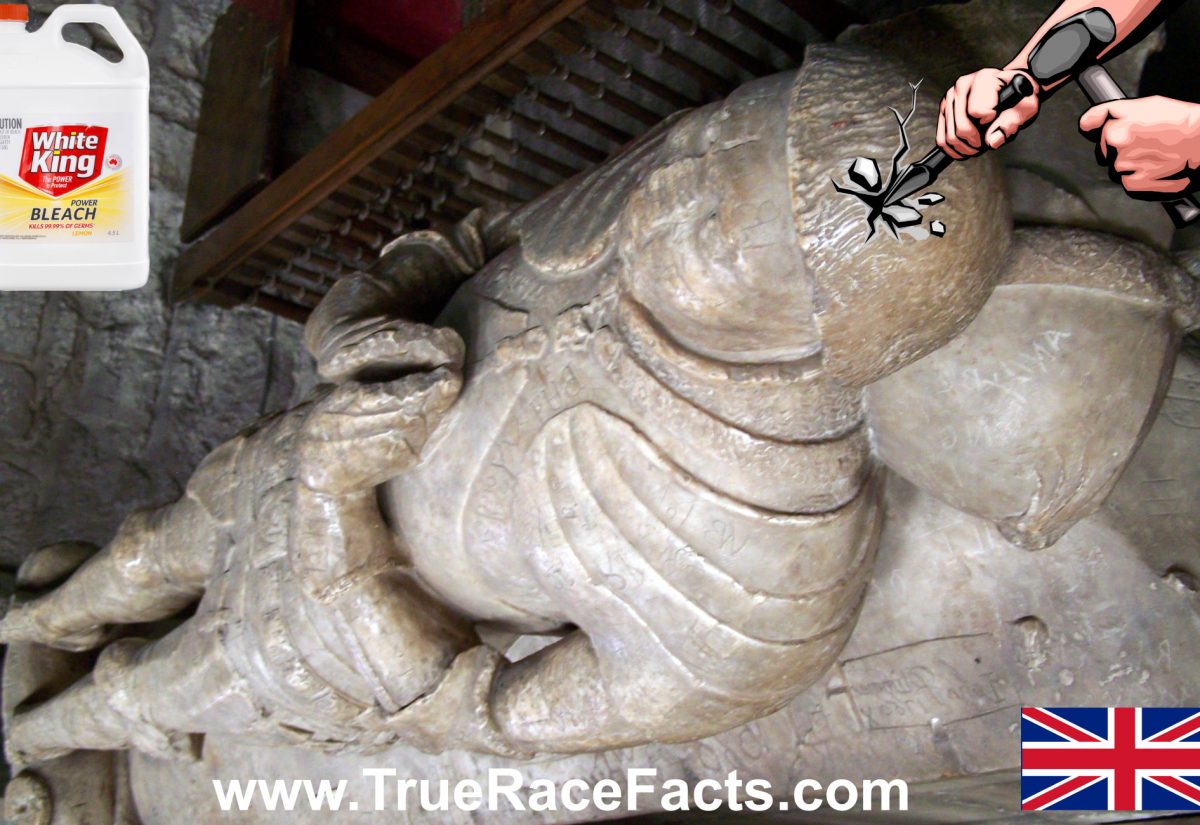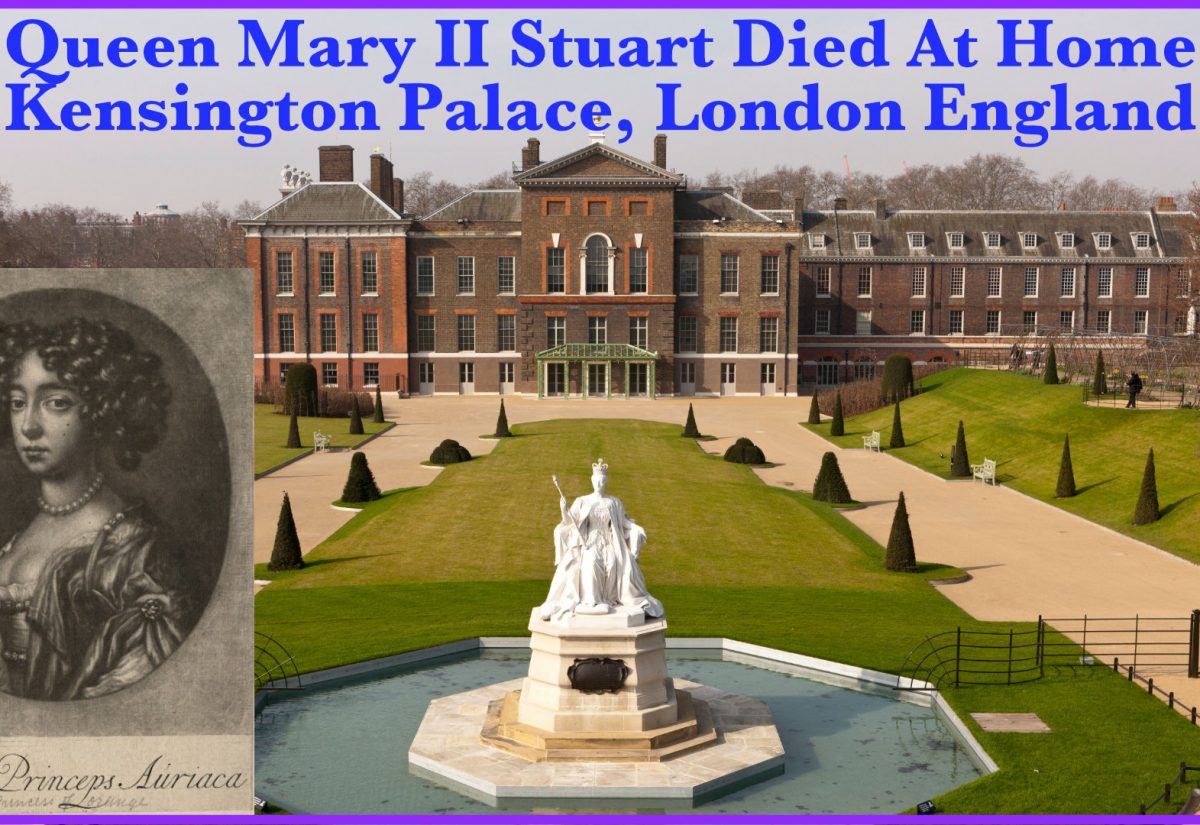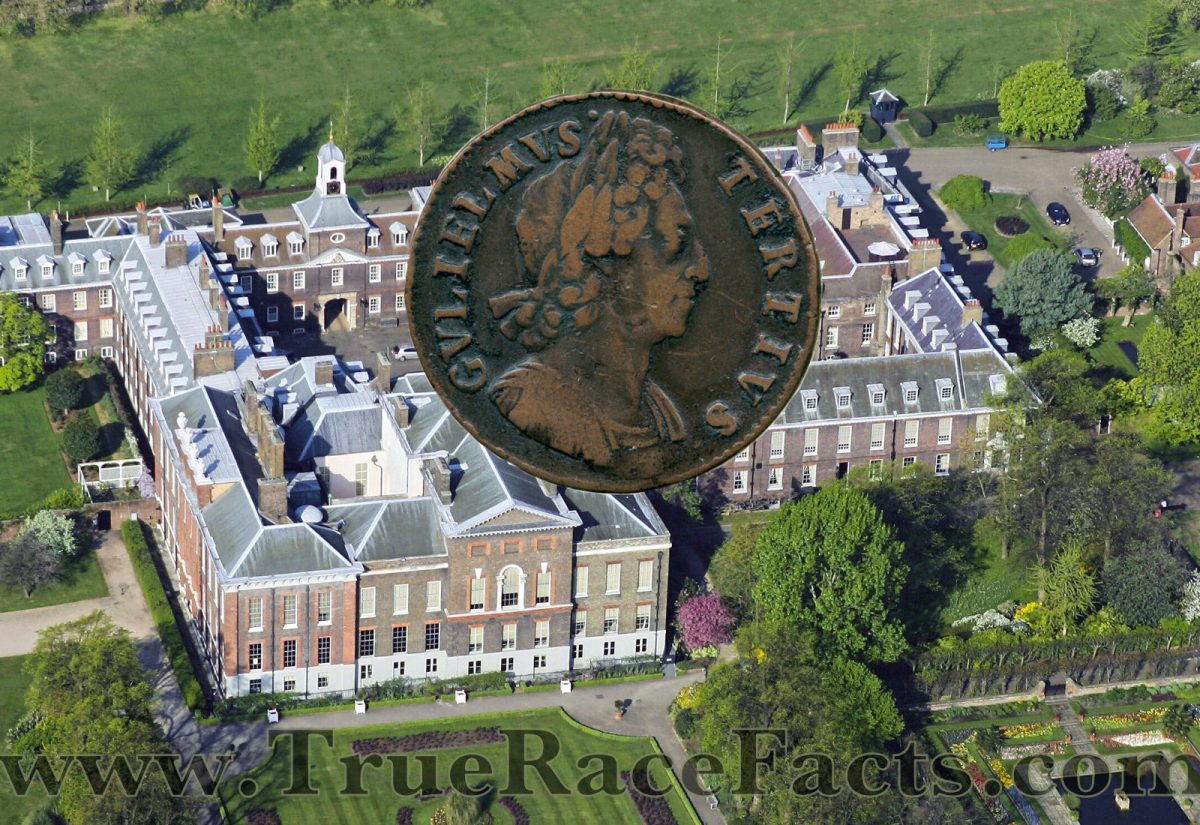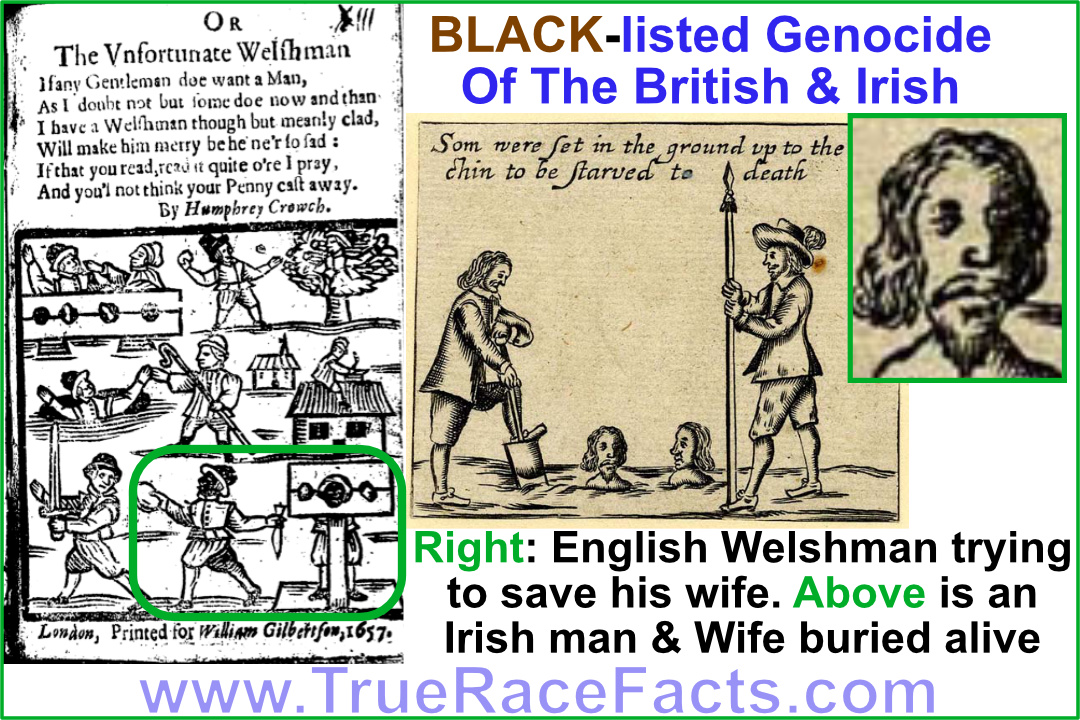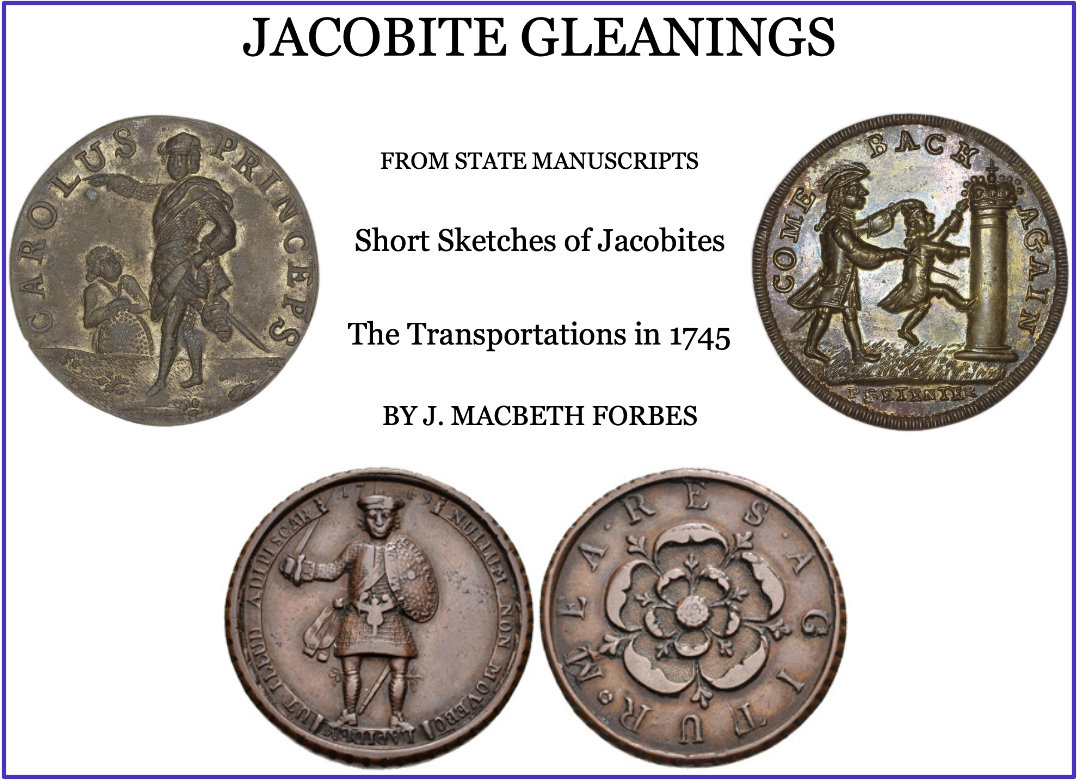- Guinevere Jackson
- 25 November 2022
TOMB OF Katherine Pole, 1519-1576 and her husband Francis Hastings, 2nd Earl of Huntingdon (1514 – 20 June 1561), was the eldest son of George Hastings, 1st Earl of Huntingdon and Anne Stafford, Countess of Huntingdon, the ex-mistress of Henry VIII. Rumour has it he may be the illegitimate son of King Henry VIII
- Guinevere Jackson
- 25 November 2022
The monument has been thought to represent Sir Robert Fraunceys, aka Franceys Lord of Foremark, who settled at Foremark towards the end of the 14th century. It has suffered extensive graffiti, probably at the hands of racists trying to destroy his facial features that would identify the nobleman as a dark-skinned so-called BLACK man. Notice the nose is intentionally sawed off carefully, but it does not hide his phenotype.
- Guinevere Jackson
- 25 November 2022
The monument has been thought to represent Sir Robert Fraunceys, aka Franceys Lord of Foremark, who settled at Foremark towards the end of the 14th century. It has suffered extensive graffiti, probably at the hands of racists trying to destroy his facial features that would identify the nobleman as a dark-skinned so-called BLACK man. Notice the nose is intentionally sawed off carefully, but it does not hide his phenotype.
- Guinevere Jackson
- 24 November 2022
The monument has been thought to represent Sir Robert Fraunceys, aka Franceys Lord of Foremark, who settled at Foremark towards the end of the 14th century. It has suffered extensive graffiti, probably at the hands of racists trying to destroy his facial features that would identify the nobleman as a dark-skinned so-called BLACK man. Notice the nose is intentionally sawed off carefully, but it does not hide his phenotype.
- Guinevere Jackson
- 24 November 2022
The monument has been thought to represent Sir Robert Fraunceys, aka Franceys Lord of Foremark, who settled at Foremark towards the end of the 14th century. It has suffered extensive graffiti, probably at the hands of racists trying to destroy his facial features that would identify the nobleman as a dark-skinned so-called BLACK man. Notice the nose is intentionally sawed off carefully, but it does not hide his phenotype.
Monarch James II, also called (1644–85) duke of York and (1660–85) duke of Albany, (born October 14, 1633, London, England—died September 5/6 [September 16/17, New Style], 1701, Saint-Germain, France), king of England, Scotland, and Ireland from 1685 to 1688, and the last Stuart monarch in the direct male line. He was deposed in the Glorious Revolution (1688–89) and replaced by William III and Mary II. That revolution, engendered by James’s Roman Catholicism, permanently established Parliament as the ruling power of England.
- Guinevere Jackson
- 6 September 2022
King William III was a FAKE king that jumped at the opportunity to seize the throne from his father-in-law, King James II. He was most likely part Edomite and was pushed to the forefront by his fellow Edomite leaders who promised him the Kingdom. Under one condition, he would have to ensure that his nieve wife, Mary Stuart, had no surviving heirs.
William III November 1650 – 8 March 1702), also widely known as William of Orange, was the sovereign Prince of Orange from birth, Stadtholder of Holland, Zeeland, Utrecht, Guelders, and Overijssel in the Dutch Republic from the 1670s
- Guinevere Jackson
- 16 February 2023
Most of the ancient images of what happened to the dark race that once ruled England, Ireland, Scotland and Europe have been destroyed or hidden. From our research, there are VAST artefacts that prove the so-called blacks were there. The period when the caucasian race took over was called the "Golden Age of Forgery" so it means that ancient art also got destroyed.
- Guinevere Jackson
- 31 December 2022
The final dark monarchy that tried to regain the British throne – Charles Edward Louis John Sylvester Maria Casimir Stuart (20 December 1720 – 30 January 1788) was the elder son of James Francis Edward Stuart, grandson of James II and VII, and the Stuart claimant to the thrones of England, Scotland and Ireland from 1766 as Charles III. During his lifetime, he was also known as “the Young Pretender” and “the Young Chevalier“; in popular memory, he is known as Bonnie Prince Charlie.
